When we heard about the Chicago Bulls’ new Ring of Honor distinction, we just had to look in our archives for throwback photographs. This year’s inaugural class includes notable players, coaches, and staff, who have defined the Bulls franchise since its founding in 1966. Here’s what we found.
Honorees
1995-96 championship team
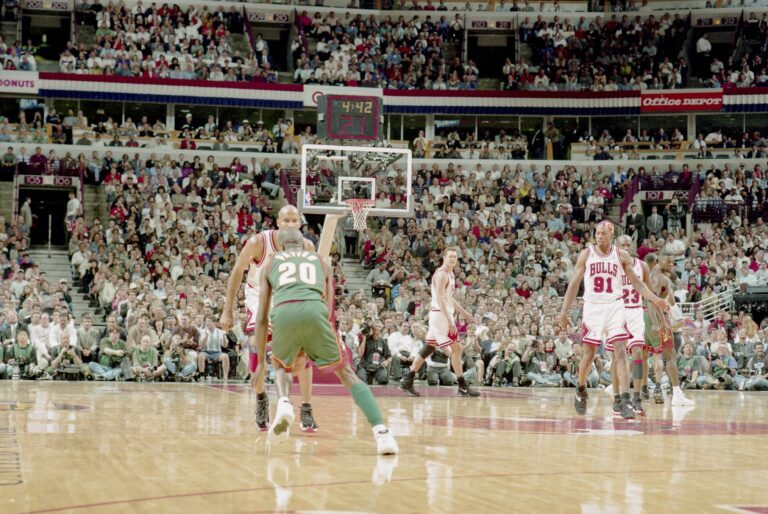
The Bulls on defense during Game 2 of the NBA finals versus the Seattle Supersonics on June 7, 1996, at the United Center in Chicago. From left: Ron Harper guarding the Supersonics Gary Payton (#20), Luc Longley, Dennis Rodman (#91), and Michael Jordan (#23). ST-17101505-0012, Chicago Sun-Times collection, CHM
With an almost entirely new lineup from their original three-peat team, the 1995–96 Bulls found a new winning formula and finished the season with a then-record-breaking 72–10 record and a championship victory over the Seattle Supersonics. The 1995–96 roster included: Randy Brown, Jud Buechler, Jason Caffey, James Edwards, Jack Haley, Ron Harper, Michael Jordan, Steve Kerr, Toni Kukoč, Luc Longley, Scottie Pippen, Dennis Rodman, John Salley, Dickey Simpkins, and Bill Wennington.
Artis Gilmore
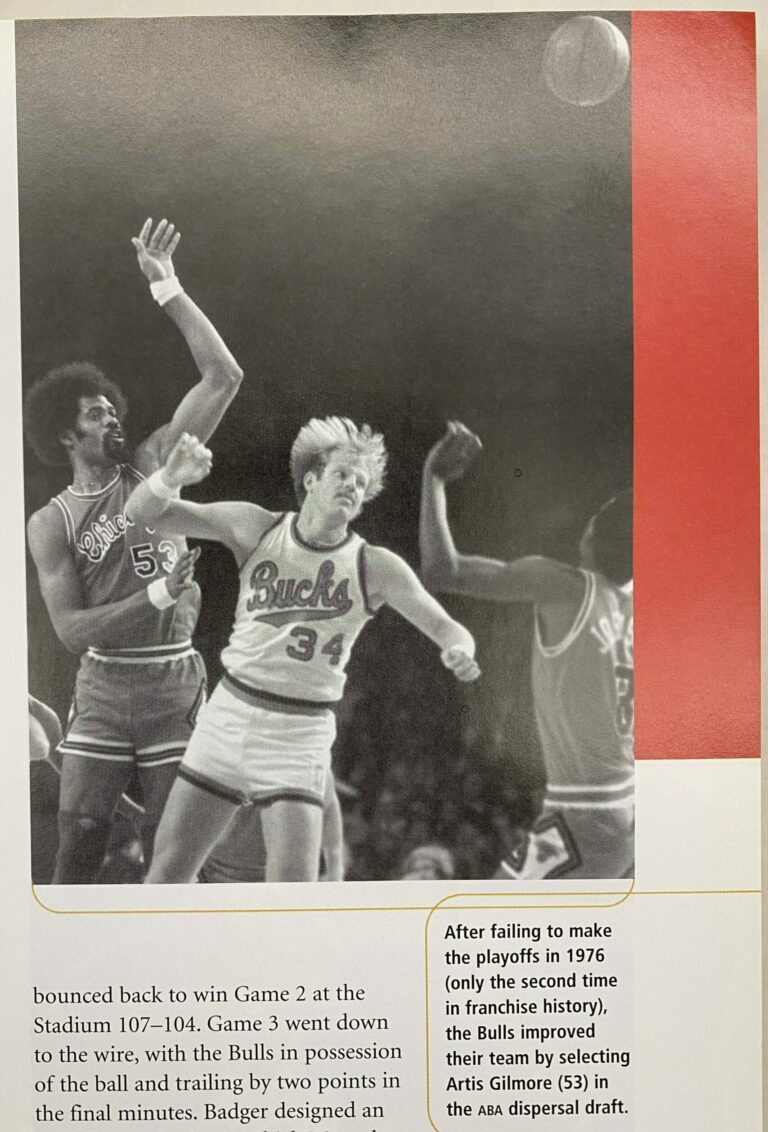
Photograph of Artis Gilmore (left, #53) in The Chicago Bulls Encyclopedia by Alex Sachare. (Lincolnwood, IL: Contemporary Books, c. 1999) GV885.52.C45 S33 1999 OVERSIZE
Dominant in the American Basketball Association (ABA) playing for the Kentucky Colonels from 1971 to ’76, Artis Gilmore joined the Bulls in 1976 after the ABA disbanded. The 7’2” center led the team in points, rebounds, and blocks his first season and was an All-Star four of his five seasons with Chicago.
Phil Jackson
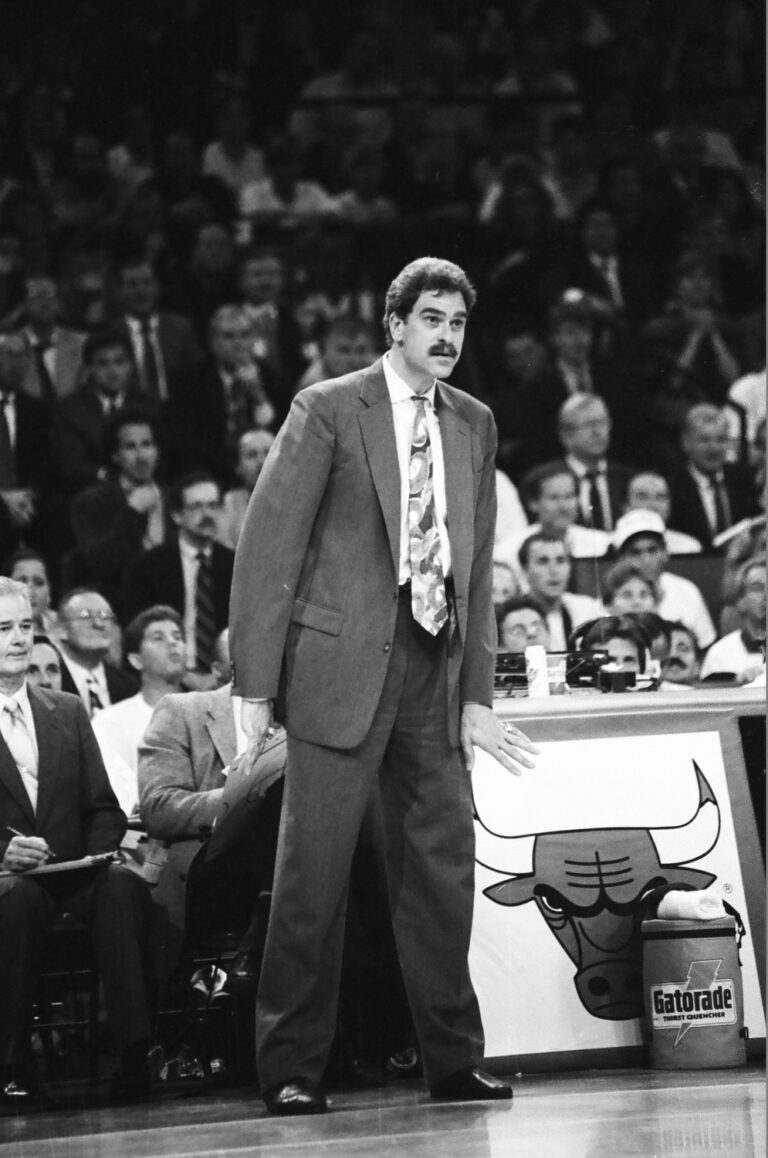
Phil Jackson at game 2 of the NBA Finals between the Chicago Bulls and Los Angeles Lakers at Chicago Stadium, June 5, 1991. ST-50004141-0089, Chicago Sun-Times collection, CHM
An assistant coach under Doug Collins from 1987 to ’89, Phil Jackson was promoted to head coach in 1989, a position he held until 1998. Jackson-led teams made the playoffs in all nine of his seasons with the Bulls, which included six NBA championships. Jackson’s one NBA Coach of the Year award came in 1996.
Michael Jordan
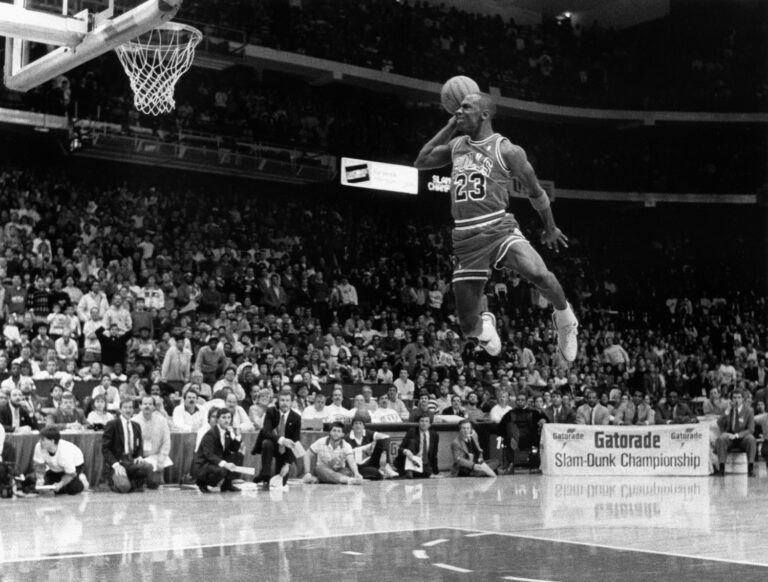
Michael Jordan takes off from the free throw line for a slam dunk during the Slam Dunk Contest prior to the NBA All-Star Game at Chicago Stadium, February 6, 1988. ST-17500478-E1, Chicago Sun-Times collection, CHM
A cultural icon and global ambassador of the sport, Michael Jordan saw the best years of his NBA career as a Bull, earning countless accolades for his scoring, defense, and overall proficiency, as well as winning six championships. His name remains in the English lexicon as a term for someone who excels at something: “the Michael Jordan of ____.” He was so dominant that anything associated with him also got attention—from Nike to Gatorade to Hanes to the city of Chicago itself. The name Jordan even ranked in the top 30 boys’ names for most of the 1990s.
Johnny “Red” Kerr
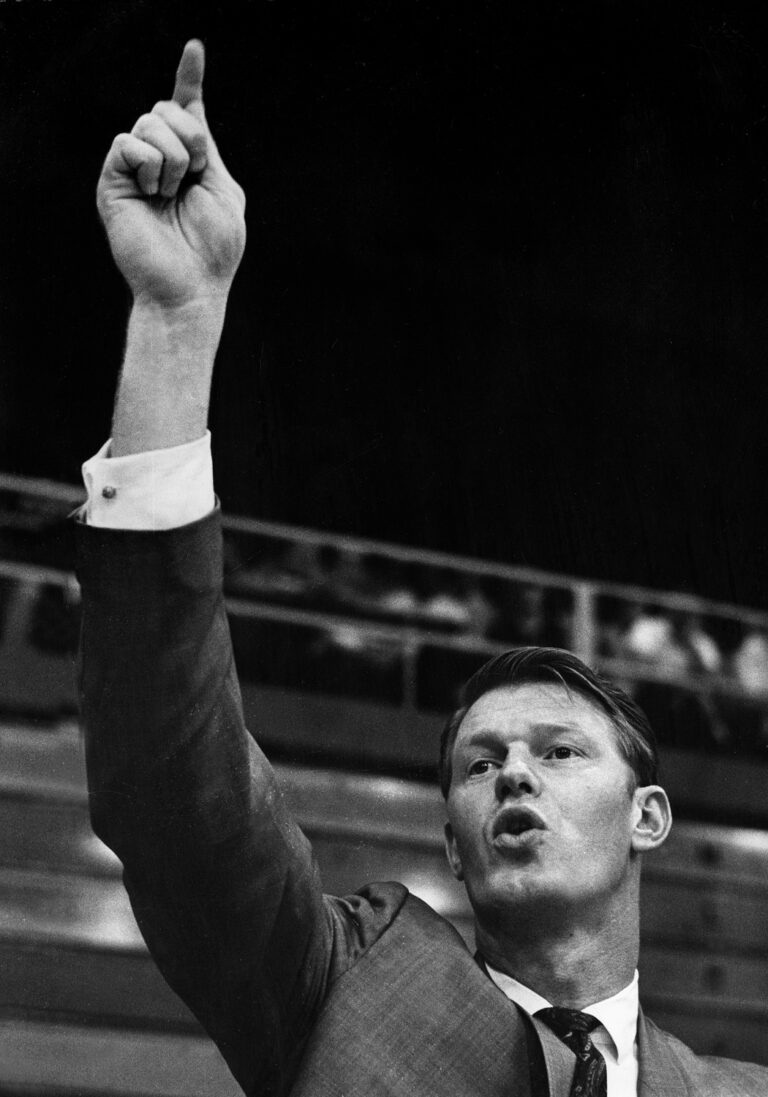
Johnny “Red” Kerr watches his rookies scrimmage at DePaul’s Alumni Hall, Chicago, August 12, 1966. ST-17500360-E1, Chicago Sun-Times collection, CHM
The voice of the Chicago Bulls for more than 30 years, Chicago-born Johnny “Red” Kerr switched from soccer to basketball and led Tilden Technical High School (now Edward Tilden Career Community Academy High School) to the 1950 Chicago Public League Championship and went on to play for the University of Illinois. He first joined the Bulls as a coach for the franchise’s first two seasons. After a stint in Phoenix, Kerr returned to work in the Bulls’ front office in the early 1970s and began providing color commentary during games in 1975.
Dick Klein
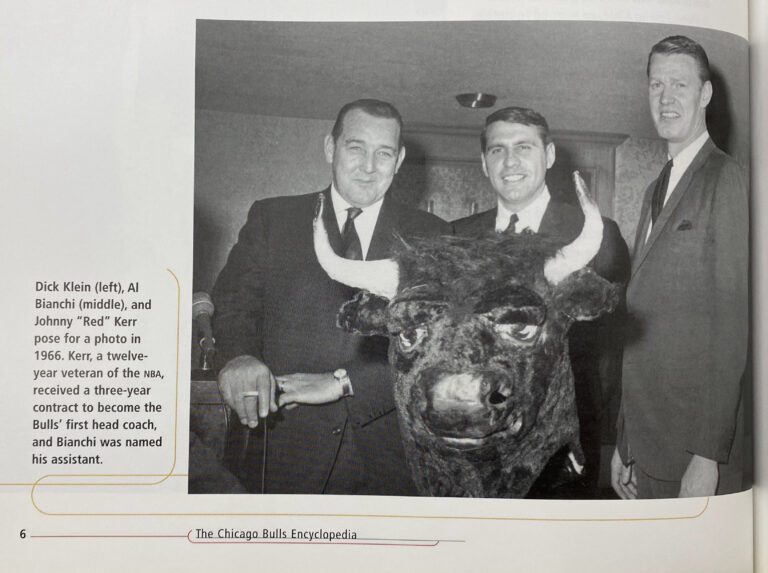
Photograph of Dick Klein with Al Bianchi and Red Kerr in The Chicago Bulls Encyclopedia by Alex Sachare. (Lincolnwood, IL: Contemporary Books, c. 1999) GV885.52.C45 S33 1999 OVERSIZE
Determined to bring professional basketball back to Chicago, Dick Klein was awarded an NBA expansion team in 1966 after getting the support of the American Broadcasting Company and other backers. He bestowed the team with the nickname “bulls,” wanting to evoke images of Chicago’s stockyards.
Jerry Krause
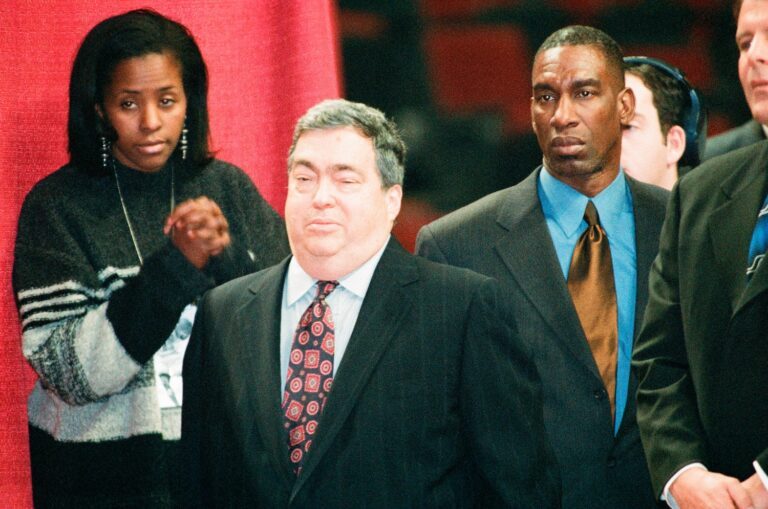
Jerry Krause watches as Michael Jordan announces his second retirement from the NBA at a press conference at the United Center, 1901 W. Madison St., Chicago, January 13, 1999. ST-60003759-0132, Chicago Sun-Times collection, CHM
Chicago-born Jerry Krause was both a baseball and basketball scout for various professional teams, including the Chicago Bulls and White Sox in the 1970s. In 1985, he became general manager of the Bulls, a position he held until 2003.
Toni Kukoč
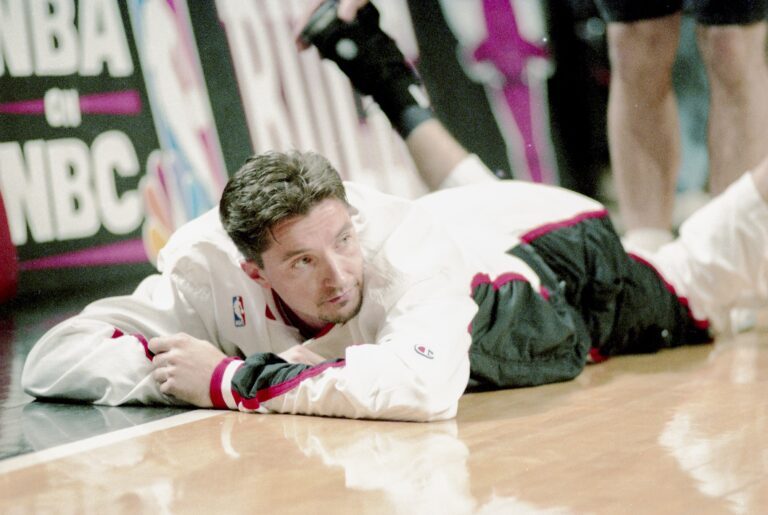
Toni Kukoč during warmups of the 1996 NBA Finals vs. the Seattle Supersonics at the United Center, June 7, 1996. ST-17101535-0043, Chicago Sun-Times collection, CHM
Hailing from Croatia, Toni Kukoč won several European Basketball Player of the Year Awards before playing for the Chicago Bulls from 1993 to 2000. As a versatile player and skilled passer, Kukoč was most often used as a sixth man for the Bulls and was awarded the NBA Sixth Man of the Year Award in 1996.
Bob Love
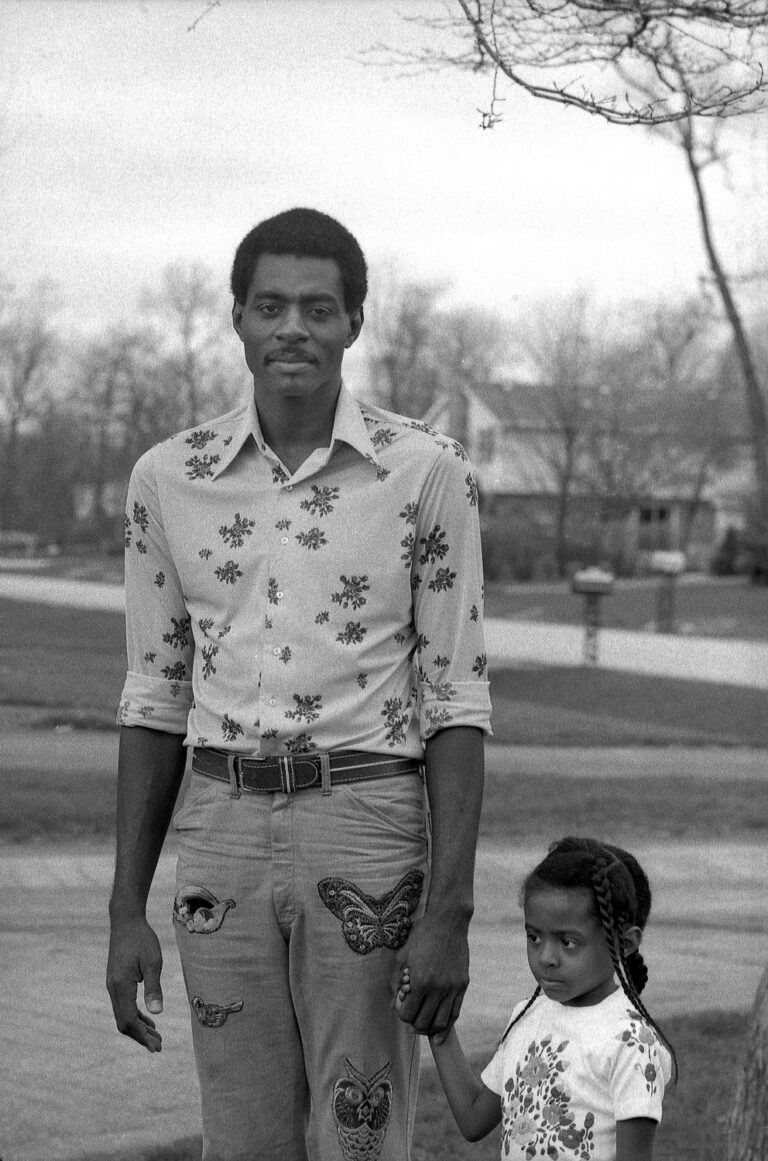
Bob Love with his daughter, Basha, at his home, Palatine, Illinois, April 30, 1975. ST-17500397-E1, Chicago Sun-Times collection, CHM
Traded to the Bulls by the Milwaukee Bucks in the middle of the 1969–70 season, Bob Love was a standout player for the Bulls in the 1970s. A three-time All-Star known for his ability to shoot with his right or left hand, Love’s #10 was the second jersey to be retired by the Bulls.
Scottie Pippen
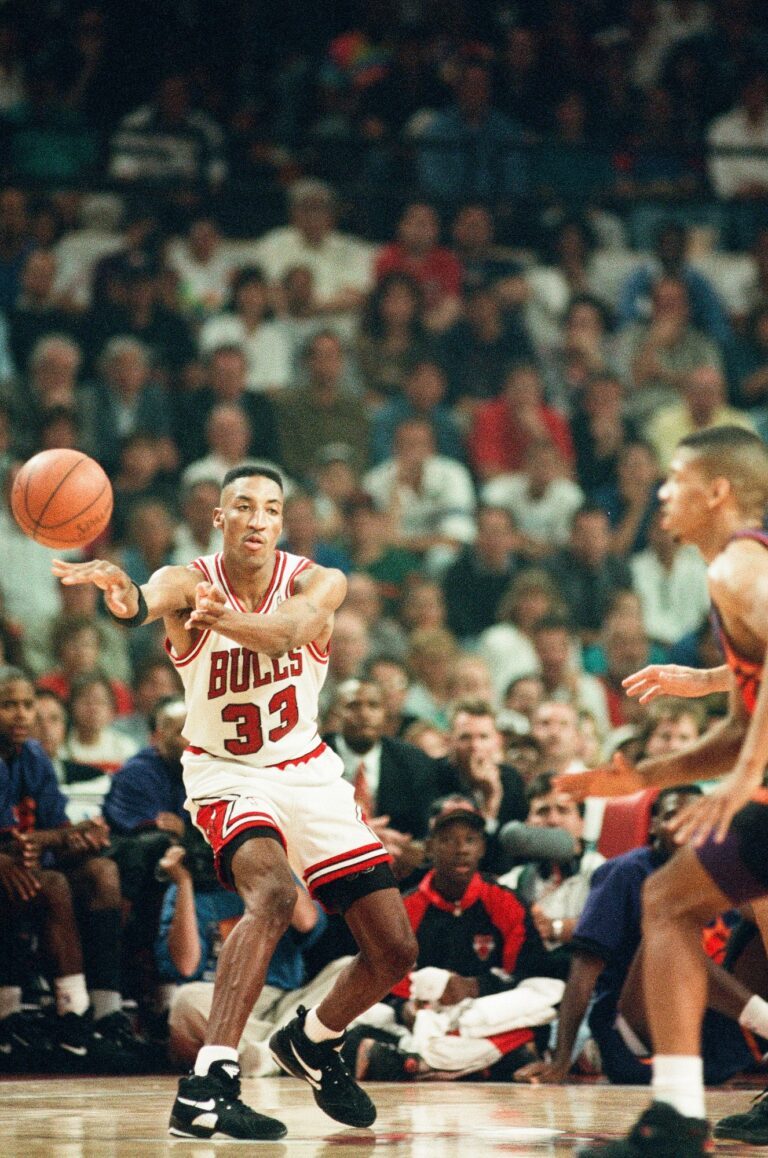
Scottie Pippen in the NBA Finals Game 2 between the Chicago Bulls and the Phoenix Suns, Phoenix, June 11, 1993. ST-10000029-0036, Chicago Sun-Times collection, CHM
Another Bull who needs no introduction, Scottie Pippen played 11 seasons in Chicago and was one of two players on all six championship teams. Considered one of the greatest small forwards of all time, Pippen’s best skill was, perhaps, his defense. He made the NBA All Defensive Team for ten consecutive years during his career and is one of three players to record 200 steals and 100 blocks in a season.
Dennis Rodman
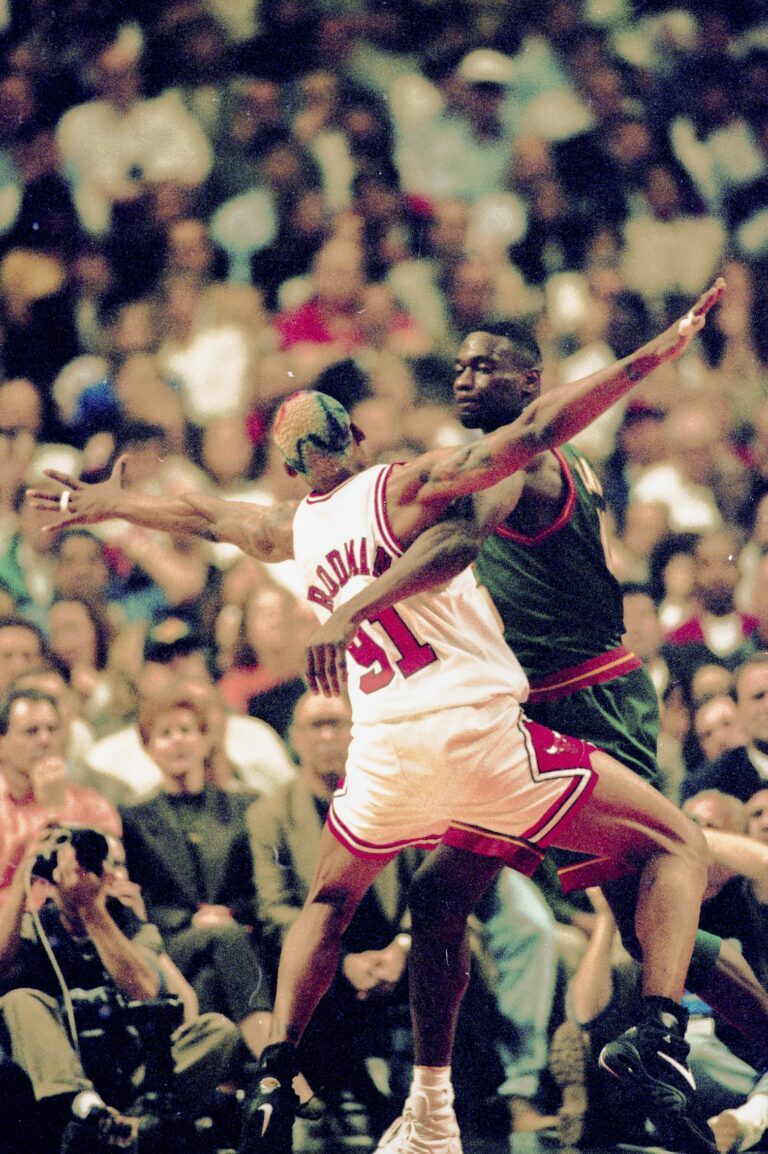
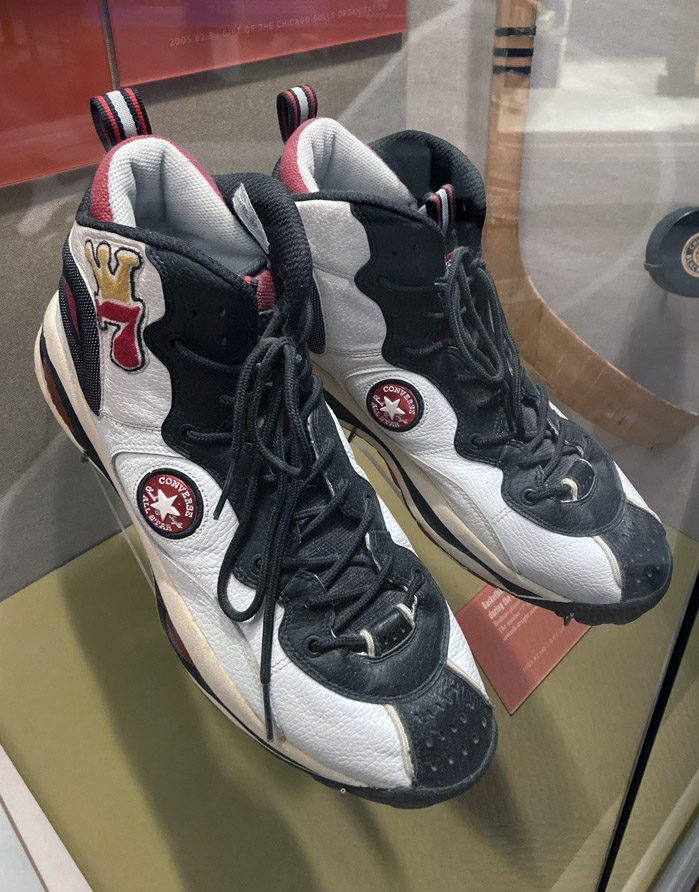
(Left) Dennis Rodman guarding Seattle’s Shawn Kemp during the NBA Finals, June 7, 1996. ST-17101535-0027, Chicago Sun-Times collection, CHM; (right) Shoes worn by Dennis Rodman during the 1997–98 postseason. The “7” embroidered on each shoe indicates the 7th straight season he led the NBA in rebounds, on display in Chicago: Crossroads of America, 2005.82.1ab-f, gift of the Bulls Organization.
Two-time NBA Defensive Player of the Year Dennis Rodman was traded to the Bulls before the 1995–96 season and spent three championship seasons in Chicago. Also known for his off-court antics and colorful hair, Rodman was a tenacious rebounder, leading the NBA in rebounds per game for a record seven consecutive years.
Jerry Sloan
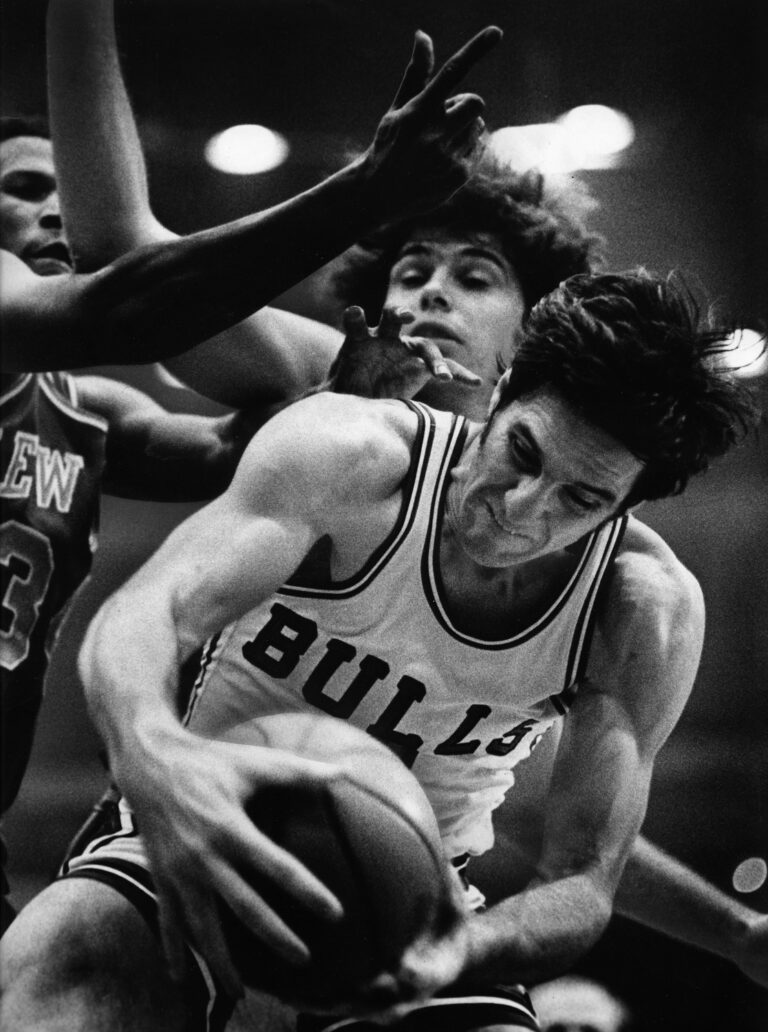
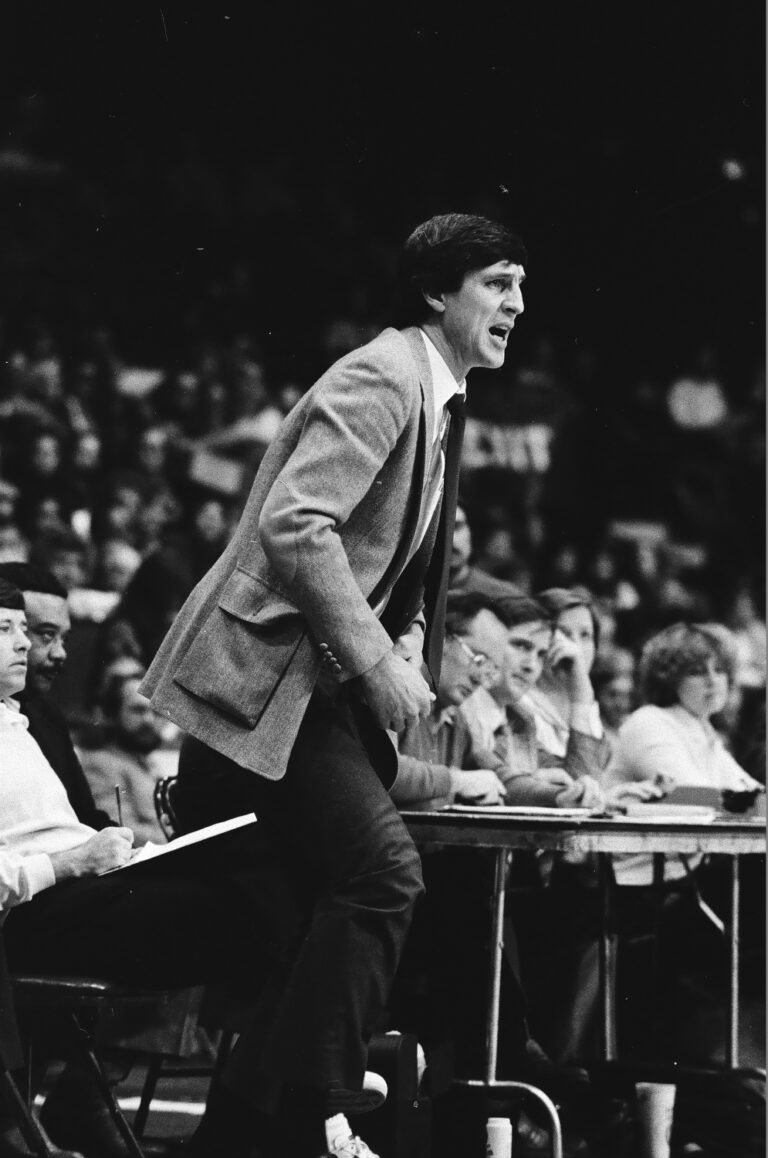
(Left) Jerry Sloan grabs the rebound during a game vs. the Milwaukee Bucks in Milwaukee, December 4, 1971. ST-17500384-E1, Chicago Sun-Times collection, CHM; (right) Jerry Sloan courtside at the Indiana Pacers vs. Chicago Bulls basketball game at Chicago Stadium, 1901 W. Madison St., Chicago, January 19, 1982. ST-40002549-0002, Chicago Sun-Times collection, CHM
Known as “the Original Bull,” Jerry Sloan was selected in the 1966 expansion draft by the Chicago Bulls. He led the team to the playoffs in their first season and to their first division title. After his playing career, he worked for the Bulls as a scout, assistant coach, and head coach from 1979 to 1982. Sloan went onto be the long-time coach of the Utah Jazz and faced off against the Bulls in the both the 1997 and 1998 NBA Finals. His #4 was the first jersey retired by the Bulls.
Chet Walker
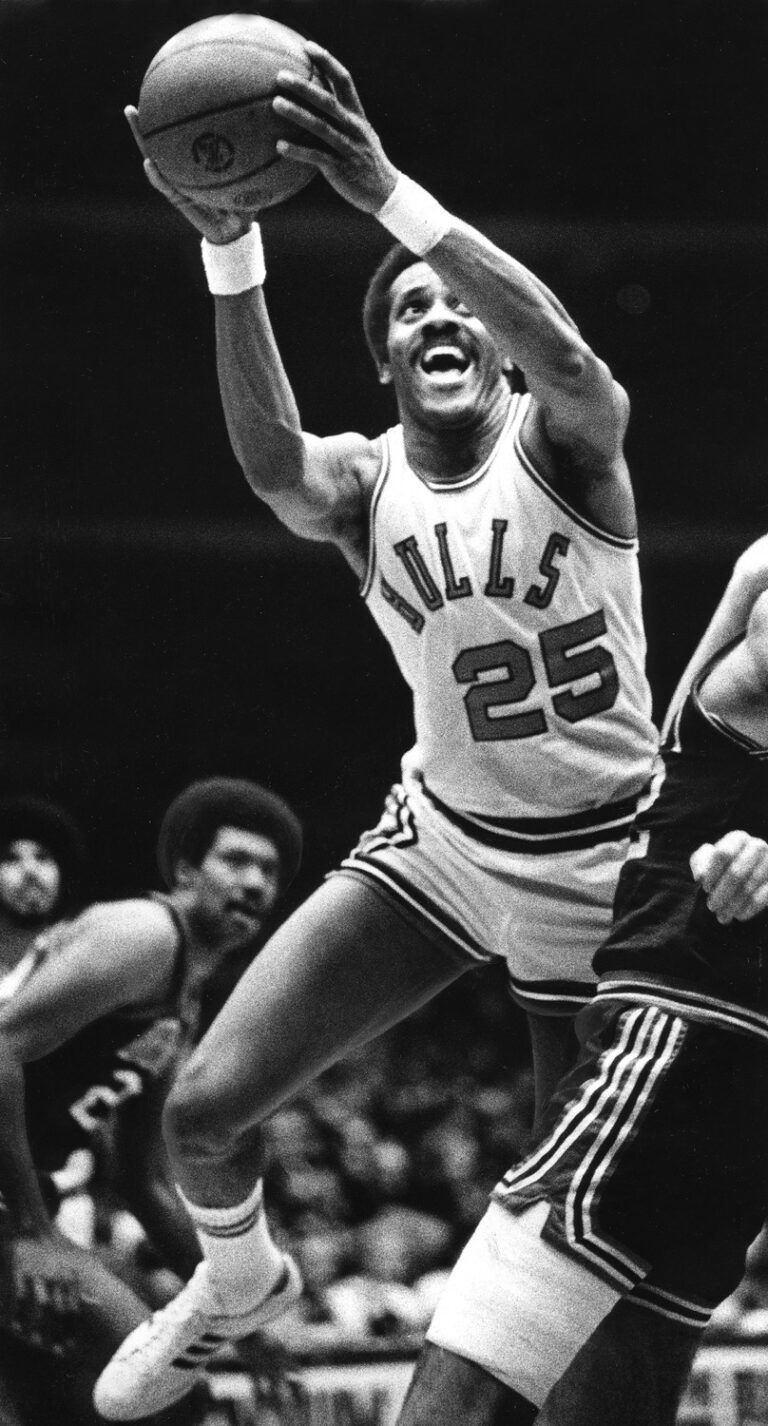
Chet Walker drives to the basket during a game vs. the Detroit Pistons at Chicago Stadium, January 25, 1975. ST-17500423-E1, Chicago Sun-Times collection, CHM
Another All-Star and Hall-of-Famer, Chet Walker was traded from the Philadelphia 76ers to the Bulls for the 1969–70 season. In his six seasons with the Bulls, he averaged over 20 points per game and was known for his excellent free throw shooting—as a Bull, he never had a season under 83% and shot a career-best 87.5% in 1973–74.
Tex Winter
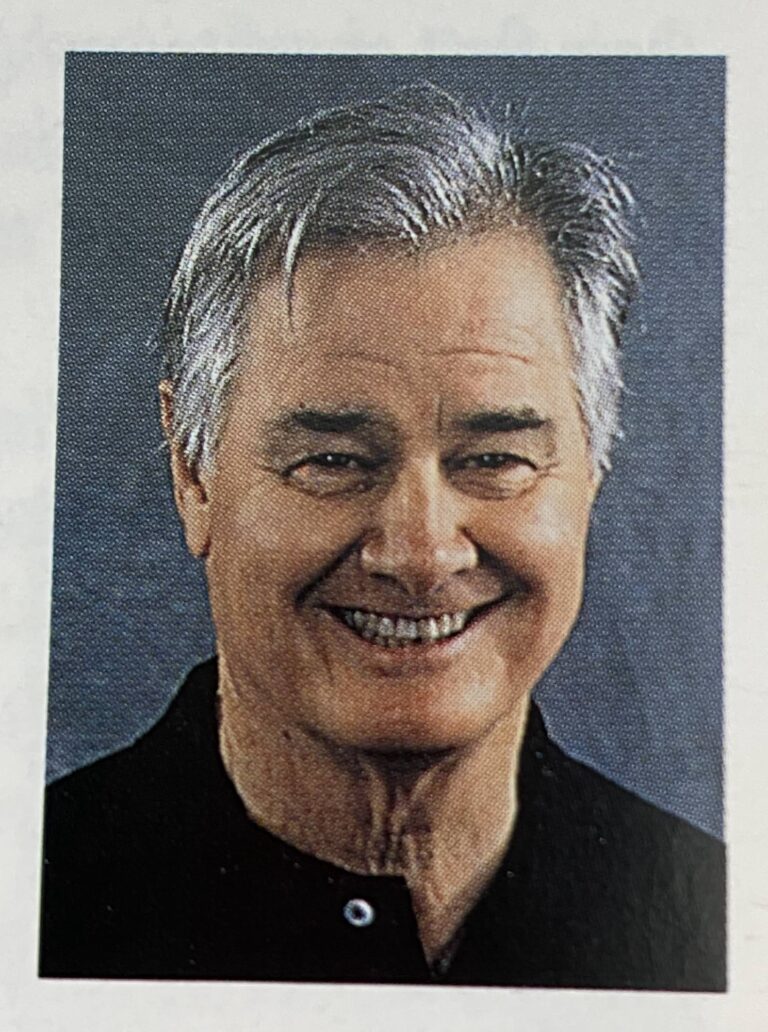
Tex Winter’s headshot from the Chicago Bulls’ 1993–94 official media guide and yearbook. GV885.52.C4 B804
A longtime college basketball coach, Tex Winter joined the Bulls as an assistant coach in 1985. As a player at University of Southern California after World War II, Winter learned the triangle offense from coach Sam Barry, which he then taught to Michael Jordan. That triangle offense became the hallmark of the Bulls’ championship teams in the 1990s.
Additional Resources
- Find more Bulls materials in the Abakanowicz Research Center, which is always free to visit.
- See more of our Bulls images at CHM Images.